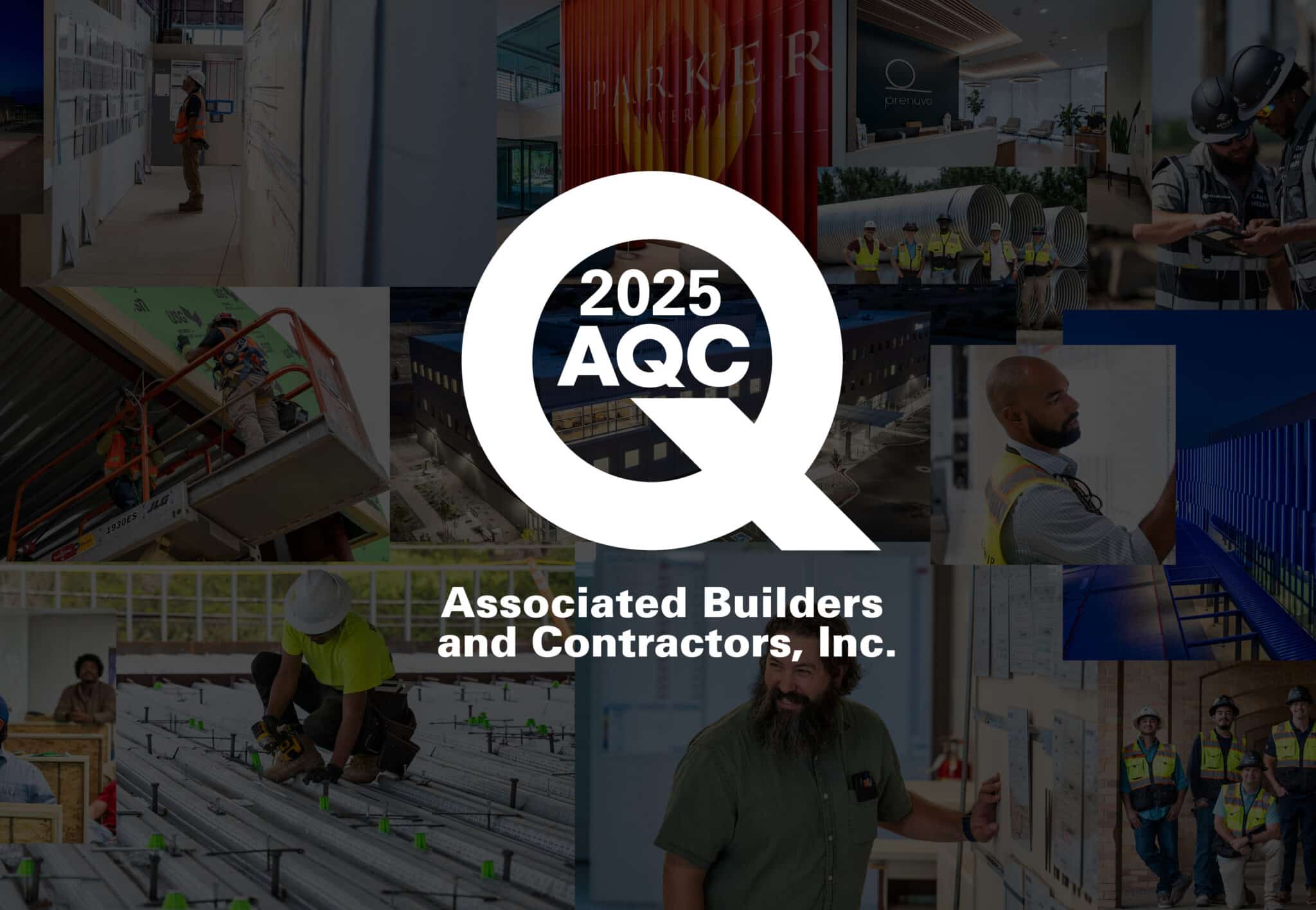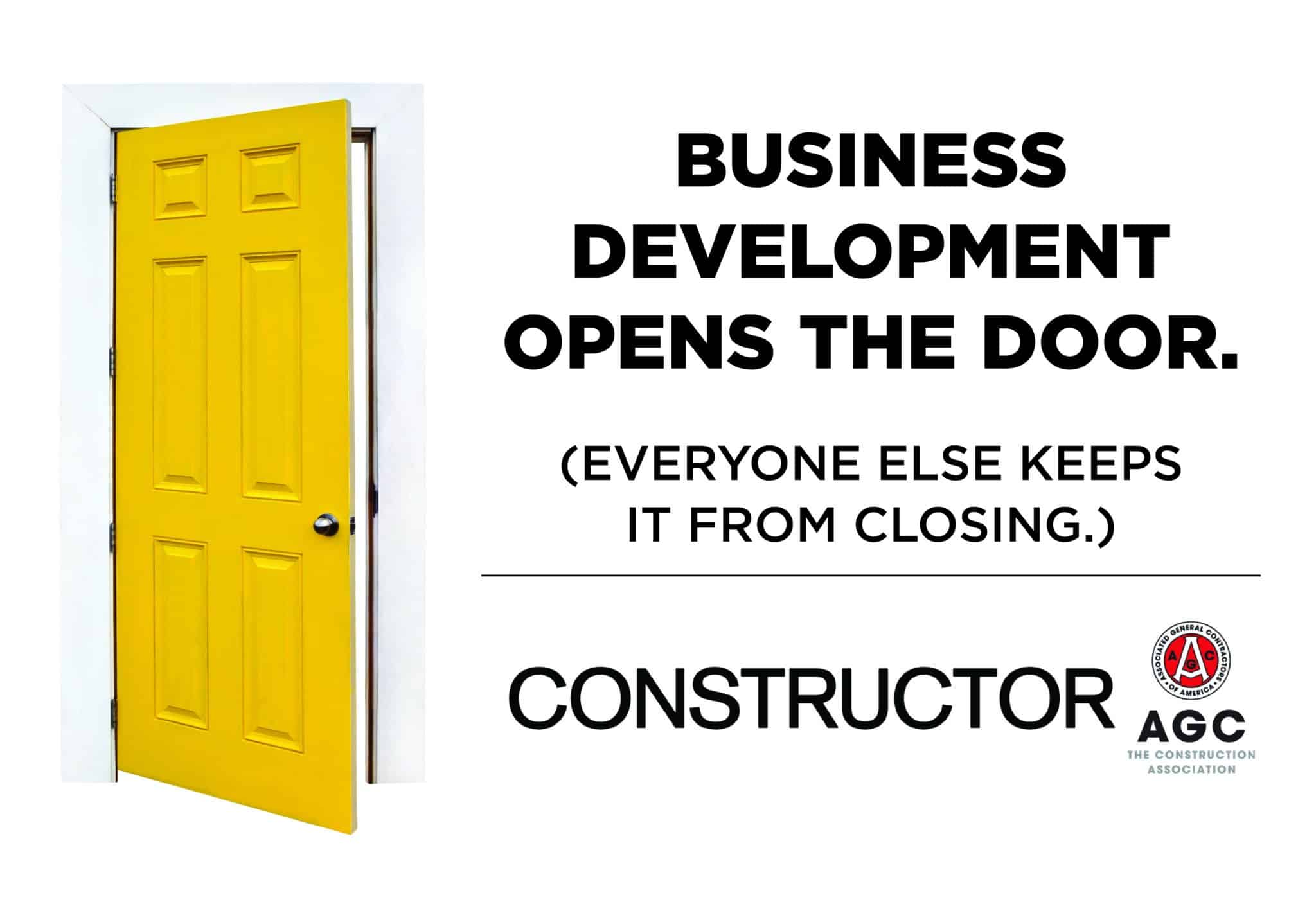March 6-10 is the National Association of Women in Construction’s annual “Women in Construction (WIC) Week”. The purpose of WIC Week is to call attention to the growing role that women are playing in the industry and to celebrate all of the women in construction. In recognition of WIC Week this year, our CEO, Keyan Zandy, sat down with a handful of our own women in construction to talk about how they built a career in this industry, the challenges they overcame, what advice they would offer to other women interested in our industry, and more.
The last generation paved the way for our generation; we’re paving the way for theirs. And our industry has changed a lot over the last 50 years. Women getting into construction today, they’re going to be just fine.
Keyan Zandy (CEO)
To provide context for this conversation, I’d like to share some background about my journey in this industry. I’ve been aware of the lack of diversity in construction, with respect to both gender and race, since I was in college. While other majors successfully attracted a variety of students from all backgrounds, the people in my area of study were pretty homogenous. With this in mind, when I started looking for a job, I knew I didn’t want to work for a company where everyone looked alike; I wanted to find a progressive construction firm. Today, I am part of the leadership for a firm that really strives to be progressive, but what’s tough is that there’s not much diversity in the resumes we receive, especially concerning gender—which takes us right back to what I observed all those years ago when I was in school. After all, we need diverse people in our trade schools and colleges before we can hire them in our companies.
But diversity in staffing is one of our initiatives, and so, for this year’s Women in Construction Week, I wanted us to share your experiences and perceptions. I’d like to talk about your journeys as women in the construction industry—what it has been like for each of you, what issues you have faced, and what you think we need to do to make our industry more welcoming and attractive to women in the future. So, to begin, let’s talk about what motivated you to pursue a career in construction, and then we’ll get into some of the deeper questions after that.
Katayoun Mokhtarzadeh (Project Manager)
My dad wanted to be an architect. He didn’t pursue that professionally because his family had different expectations for him, but his passion for designing and building things never left. He built several houses, including our family’s home, and always dabbled with plans and tools. I grew up around that, so I was subtly assimilated into construction. When I went to school, I explored architecture and even got a degree in engineering, but I quickly realized I wasn’t truly passionate about it. Luckily, I ended up with a great internship that offered me a variety of experiences, and this ultimately led me to truly construction-oriented work.
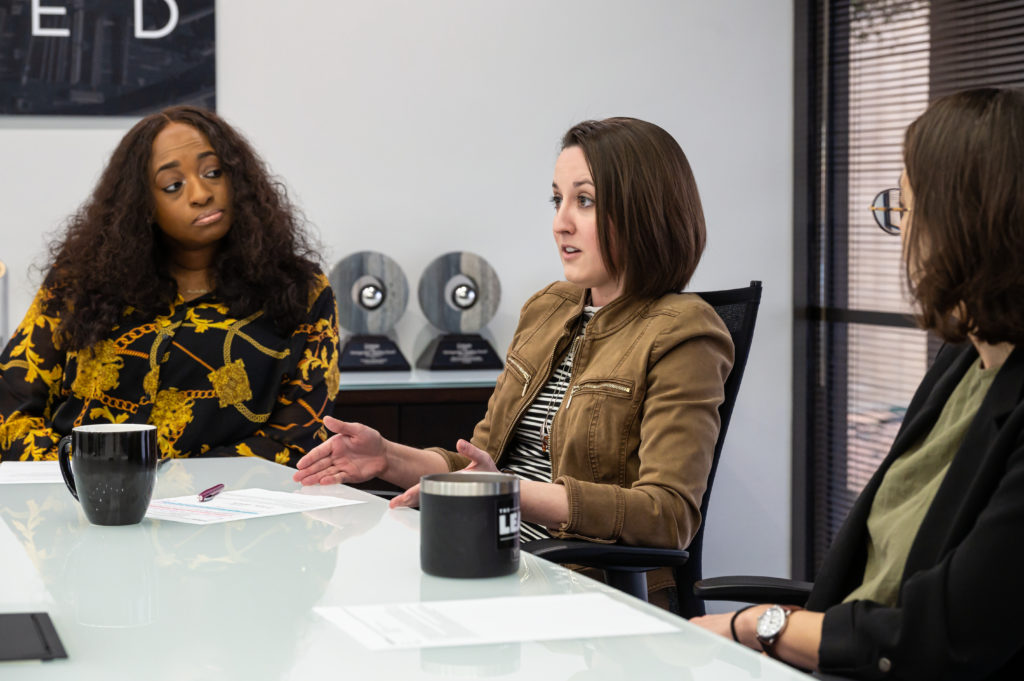
Kari Westrup (Preconstruction Manager)
I pursued an engineering degree because engineering would give me a solid foundation for any number of career options. Through my architectural engineering program, I developed a passion for building design, construction, and teams. In particular, the program’s project management course was my gateway into preconstruction. I learned the basics of compiling an estimate, which appealed to my love for detail. Now, as I’ve matured in my role, true estimating takes a back seat. What I really love is working through problems with different teams, all focused on a common goal.
Michelle Davis (Senior Project Accountant):
I went to school for financial services and banking but got into construction by working with my mom in homebuilding. She was an operations manager; I worked for her, and she taught me a lot. Then I eventually went to work for a general contractor. I’ve worked with and around these same types of people for so long that it’s ingrained in me. So that’s what’s exciting and what I love about this industry—it’s the people.
Shelby McEntire (Director of Human Resources)
One of the things I love about being a human resources professional is that you can do HR for any company—the options are endless. So, I didn’t pursue a career in construction; construction found me. After previously working in telecom and software development, I luckily happened upon an opportunity with Skiles Group. I fell in love with this industry. I can’t see myself going into any other sector now. My clients are our employees; I love the teams that I support, the unique people that we have, and all the personalities. I also love the tangibility of our projects and the life-changing work that we do.
Saumya Thakur (Project Manager)
I knew I wanted to go into engineering, so I chose civil out of the available options. I fell in love with it when I started studying that as an undergrad. It had design, physics, math, structural engineering—all of that. Then I discovered that I liked the management part of the construction more than designing. So, after completing my undergrad in India, I moved here for my master’s at A&M and took up construction management. It’s more on the people side; I really enjoy working with the people in this industry.
Keyan
Thanks for sharing those stories. Can any of you speak to some of the challenges you faced as a woman in the construction industry and how you overcame them?
Katayoun
I noticed differences earlier in my career. For example, there were times I would send out emails, but the reply was only addressed to my project manager, who was a male. Or times when they’d return my phone call but they’d call my immediate supervisor. It happens in very subtle ways, and it just makes it a little more challenging to get stuff done. The biggest thing that helped me was having someone on a higher level who saw what was happening and helped set the tone; they kept adding me back to the email chain and called the behavior out. I appreciated that. It really helps to know that they see it, too, and they support you. It’s just unfortunate that they have to do that.
Kari
I feel blessed by my experience. Even when I began my career as an intern, the guys in the field were invested in my growth and were not uncomfortable with my presence. They always wanted to teach me something. My initial lack of confidence was the biggest obstacle I had to overcome. Now that I have experience under my belt, my confidence has grown immensely. I’m not the same quiet person I was when I started. I’ve learned how to be firm and deliberate in my communication.
Michelle
I feel similarly; I’ve been fortunate. It may be because of my personality and how, over my 27 years, I’ve adapted to the people I work with. But I have had very few issues or adversities.

Saumya
I also haven’t faced many challenges; I have been very blessed as well. My first project out of school was with a woman PM, and we had a project engineer who was female too. So, it was a good team of three females; we were rocking and rolling, and it was great to have that experience. The only thing that I would say, as Kari mentioned, is about confidence. I feel like women don’t “toot their own horn” or say they’re ready to take on the next opportunity or promotion as easily as men do. I had to learn to do that. It’s also important for leadership teams and managers to make sure they give equal opportunities. It may be easy to overlook women because they’re less likely to make themselves seen or heard.
Shelby
A challenge that probably all of us face as women in construction is the misconception of what construction is—what we do and the types of people we employ. To overcome that, we have to be vocal about who we are and the type of firm we are. I want to do what I can to show that this is a sophisticated and progressive space; the things we’re doing are just as cool as other, more glamorous-looking industries. There is a challenge to prove that the work we do is intelligent and adds value to the world. It’s so much more than I think people give it credit for.
Katayoun
Those misconceptions about our industry are part of what keeps women out, too.
Shelby
Absolutely, it’s very important to talk about those perceptions of our industry and how they might make women not want to come into construction.
Keyan
Are there things we could do better in the industry to make it more attractive for women? Is there anything that could make it easier for women to be here?
Katayoun
This may seem out of left field, but I’d like to see organized training for skills like golf and skeet shooting; these are common leisure and philanthropic activities in this industry. Don’t get me wrong; I’m meeting a lot of women who can beat men at golf. It’s very impressive. But for anyone, man or woman, coming into this industry who will eventually have to get involved with the business development side of things, it’ll be helpful for them when they are entertaining clients. It’s not just these; it’s anything related to retaining clients and building relationships because it’s not just one person’s job. We’re all doing it, all the time. And some of us just don’t have the knowledge.
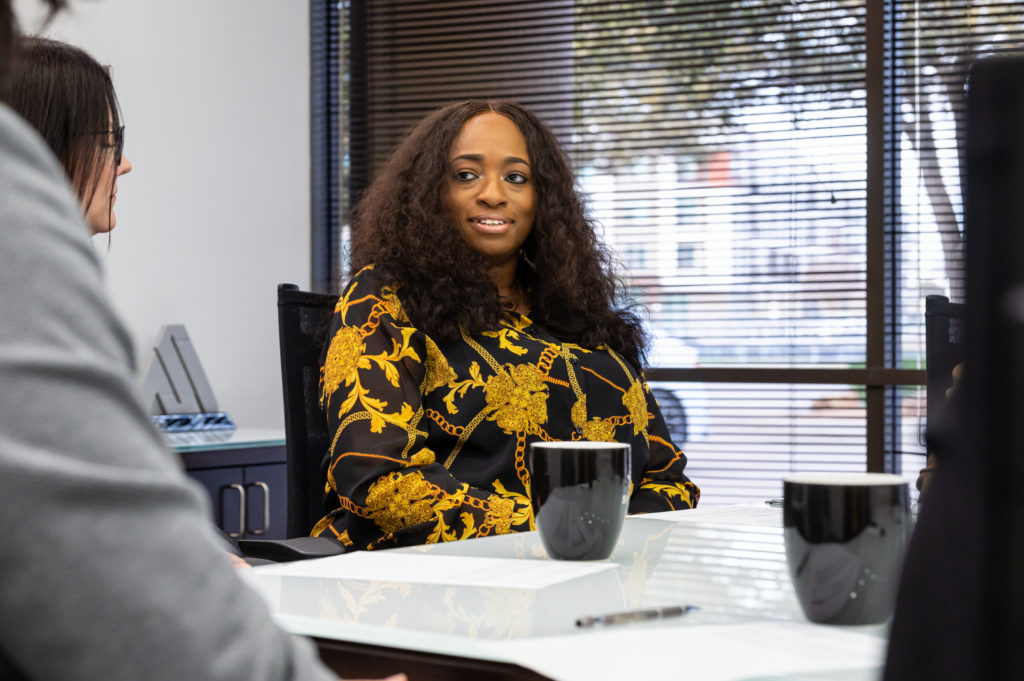
Michelle
We need to see more of the women who are already here, so others can see a place for themselves when they think about construction. I remember the first time I saw a female superintendent. I was so impressed by her. And she drove a Mercedes! I was like, where’s her truck? She wasn’t what I expected. And that’s the point.
Saumya
I want to see maternity and paternity leave become more equitable and commonplace. Having a baby is something the mother and the father do together, but many men are not offered paternity leave to support their partner after bringing a new baby home. This disparity can work against us, casting women in a negative light as a liability concerning pregnancy and taking leave following a birth.
Katayoun
Yes, and I think some of this will be self-regulated if we prioritize supporting our teams to take time off, no matter who it is or what it’s for. Everyone deserves time off; just have conversations about needs and expectations, so we can plan and juggle resources to accommodate those needs.
Keyan
What advice might you give to other women considering a career in construction—what would you tell them?
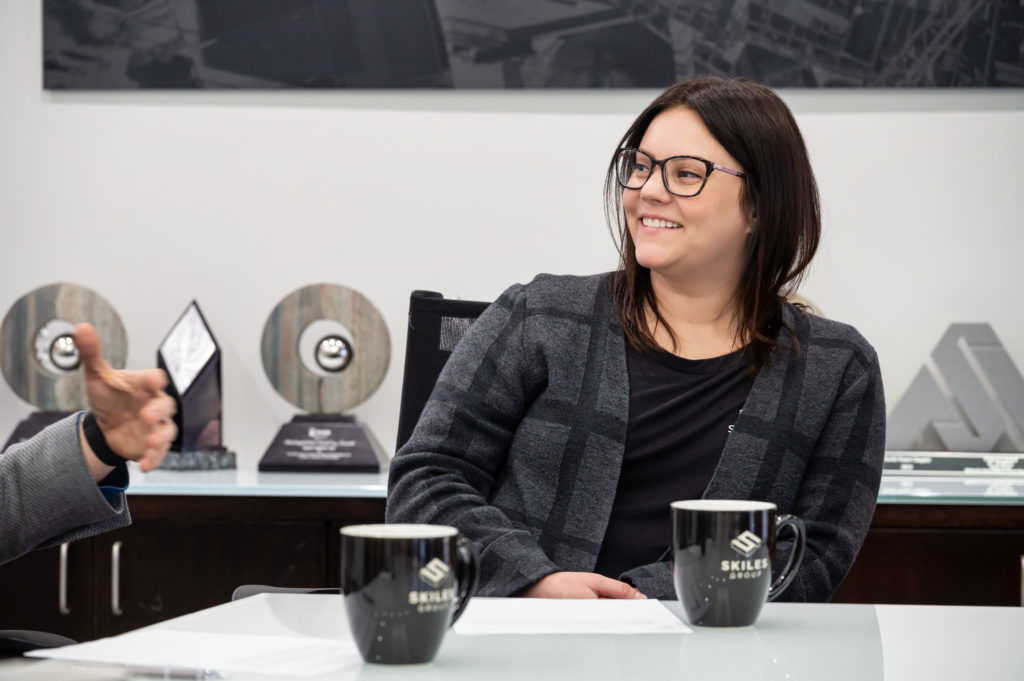
Shelby
My advice would be to encourage internships and exposure as early as possible with a variety of companies. It’s essential to do your research and find the right type of firm that fits you—not just as a woman but also as a human. I would encourage women to advocate for themselves, look for what matters, pursue the most important benefits, and find a company that can be exactly what they need. I would personally love to have more resumes from women come across my desk. We just don’t get very many. But I would be thrilled to find more women bringing their skills, abilities, and backgrounds to the firm.
Katayoun
I completely agree about internships. That way, they get a breadth of experiences, better understand what they want to do and what they’re getting into, and can find whatever makes them feel passionate about their work. Passionate people are happier.
Saumya
To add to that point, I would tell them about the various fields available in construction. It’s not just bricks and concrete—it’s accounting, preconstruction, marketing, human resources, and business development. And if you like to be hands-on in the field, it’s not just being a PM or a superintendent; for more significant projects or larger companies, there are also specific roles like schedulers or project coordinators. Don’t think of “construction” as one-dimensional; there are so many options.
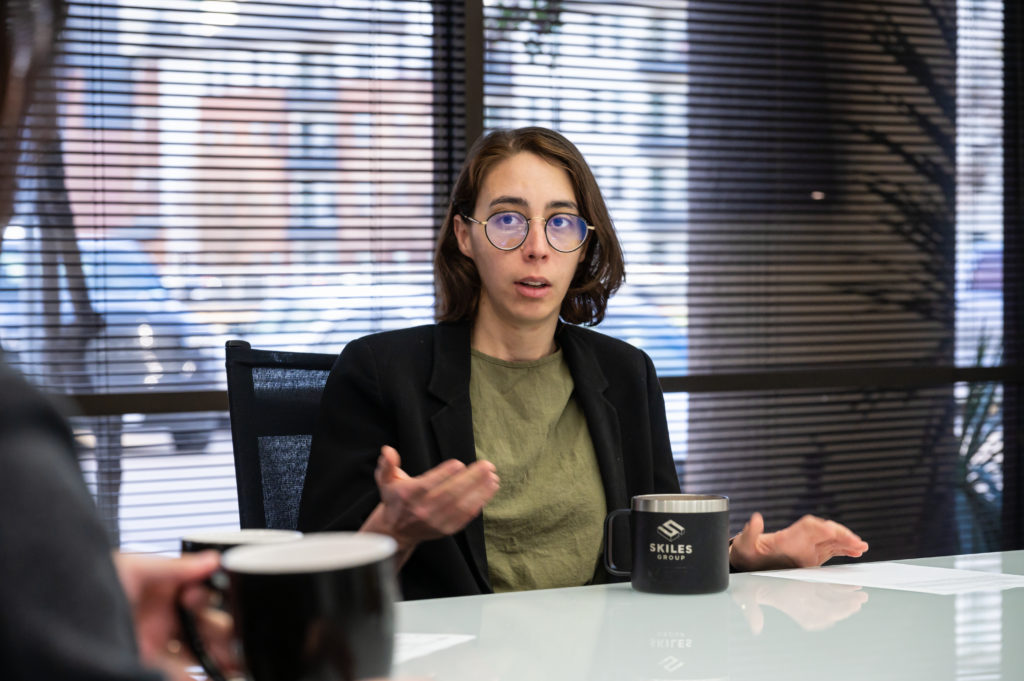
Katayoun
We need to incentivize everyone to explore all of the opportunities that exist here because we need more people in construction, period, not just more women. People seem to think, “We’re gonna be out there in the dirt,”—but that’s not a bad thing, either! Sometimes that’s right for you; that’s what you should do. We should move away from touting white collar as the most prestigious career path. I work with trades and craftspeople who make more money than I do, like we’re not even close to being at the same level with respect to income. They’re prestigious.
Keyan
Is there anything you would tell them to be prepared for, though? Like, “Well, be ready for XYZ because you are a woman, and this is how it is,” or anything like that?
Shelby
Construction has been male-dominated, so women coming in need to expect that there’s still some growth needed here. For example, I’ve talked to some men in this industry who say, “Oh, I would never hire a woman on my jobsite.” You’ll find that there’s still that old-school mentality that’s kicking around. There are nuances, and some generational barriers that I think can occur between men and women in any industry; we’re no different. So that’s something I would caution someone about regarding getting into this industry. You have to acclimate, and you have to bring a little bit of thick skin. These things are dying, but you’ll still run across them. Do I believe it’s worth it, and you should join us anyway? Absolutely.
Katayoun
All of that is true, but I think the next generation is tougher than we ever were. I think they will face different challenges than we did. So, it’s hard to give advice because they’re going to meet different hurdles. The last generation paved the way for our generation; we’re paving the way for theirs. And our industry has changed a lot over the last 50 years, so I think it’s not fair to have it come with some kind of a “warning.” Women getting into construction today, they’re going to be just fine.

